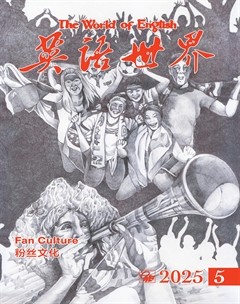We live in a world obsessed with happiness. Between chief happiness officers1, the Happy Planet Index2, Gross National Happiness, and the World Happiness Report, it seems as though happiness has some good PR. Throughout modern history, and with little contesting, happiness has been seen as the end goal and just reward for a life of laudable toil.
我们生活在一个执着于幸福的世界。从“首席幸福官”“幸福星球指数”“国民幸福总值”和《全球幸福指数报告》中似乎可以看出,对“幸福”的宣传颇为有效。纵观现代史,对于值得赞美的辛劳生活,幸福一直被视为其最终目标与合理回报,这一观点几乎没有争议。
Before the ancient Greek philosophers, happiness, like most things in life, was seen as a benefaction granted by the gods. It was the great iconoclast Socrates who became the first to suggest that happiness was a cognitive and meaning-making pursuit, something in a person’s control, rather than simply a gift bestowed by the gods. And now, the positive thinking movement, abundance theory and any other number of self-help genres see some form of happiness as the primary objective and something we can achieve if we just try hard enough.
在古希腊哲学家的时代之前,幸福和生活中的大多数事情一样,被视为神赐恩惠。伟大的反偶像崇拜者苏格拉底第一个提出,幸福是一种在认知层面构建意义的追求,是人可以控制的东西,而不仅仅是神赐的礼物。如今,积极思考运动、富足理论等各种自助流派都将某种形式的幸福视为首要目标,认为只要我们足够努力就能实现幸福。
It’s an unfortunate irony then that in a world fixated on happiness, people are so chronically unhappy. There are 280 million people with depression globally, according to the World Health Organization. It’s a further tragic irony that we are so bad at knowing what will make us happy. As humans, we “miswant” a lot of things that we have been conditioned to believe will make us happier than they actually do. How often have we felt a certain kind of deflation after that big purchase or much-anticipated night out when it didn’t live up to our expectations?
然而,既讽刺又令人遗憾的是,在执着于幸福的世界里,人们却长期处于不快乐的状态。根据世界卫生组织的统计,全球有2.8亿人患有抑郁症。更为可悲的是,我们根本不知道什么能让我们幸福。我们人类“误以为自己想要”很多东西,习惯于相信这些东西会让我们更幸福,但事实并非如此。我们有多少次因为大采购或热切期待的夜生活没有达到预期而在某种程度上感到失落?
Between self-help gurus, philosophers and marketers all telling us how to be happy, it’s easy to get confounded. How do we achieve happiness? As captivating as it is, that question isn’t the right one. This one is: What if we’re so fixated on happiness that we’ve failed to question whether happiness is what we should be pursuing? What if, after two millenniums of debating the relative benefits of varying types of happiness, we could focus on another, more enduring, more impactful emotional state that will bring us both happiness and more significant benefits? Simply put, it feels like we are on a racetrack, chasing the wrong rabbit.
自助大师、哲学家和营销人员都在告诉我们如何获得幸福,我们很容易感到困惑。我们如何获得幸福?这个问题虽然很吸引人,但问得不对。





